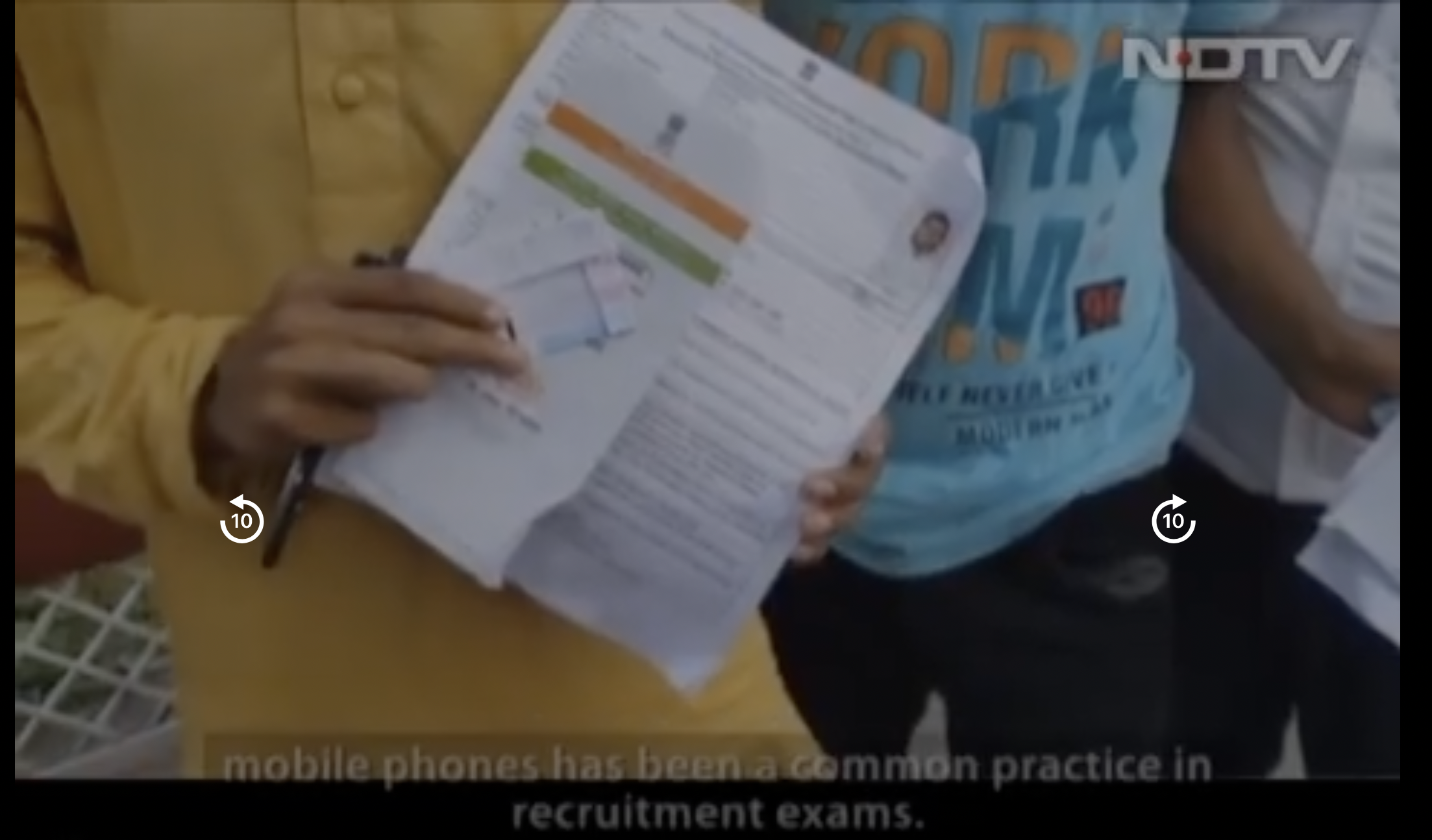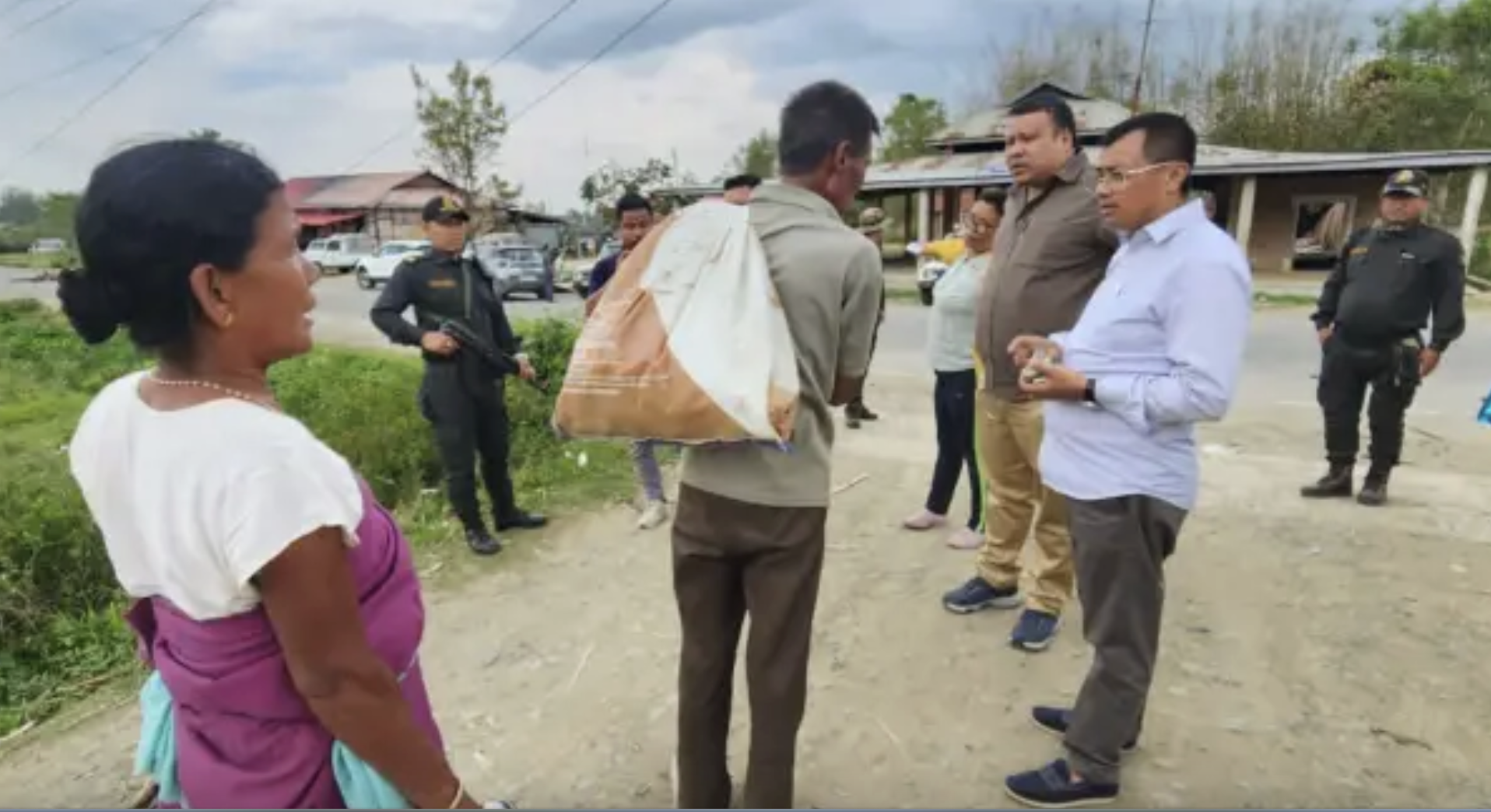Still no full Internet restoration in Kashmir: SC order
Despite pleas by doctors and students, the people of Kashmir are still denied full restoration of Internet. A Supreme Court order on a petition filed by the Fountation for Media Professionals and the Private Schools others, merely said that a high powered committee would look into the matter. National security and human rights have to be balanced, the three-judge bench headed by Justice Ramana said.
The high powered committee will comprise top officials of the Ministry of Home Affairs (MHA), including Secretaries of MHA, the Communication Ministry and the Chief Secretary of Jammu and Kashmir.
Here is the order : Kashmir Judgement 11.05.2020_compressed
Also read:
Statement from Internet Freedom Foundation:
Tl;dr
Today, the Supreme Court passed an order on the restoration of 4G services in Jammu and Kashmir. This was in a petition filed by the Foundation by Media Professionals with two other petitioners. The Court directed the immediate constitution of a high-powered Special Committee which will be looking into the contentions of the Petitioners for 4G restoration in Jammu and Kashmir. Practically this means that 4G services will be restored in a phased manner and require further advocacy and time. While, we cannot imagine what people in Jammu and Kashmir will be feeling today — we request them to maintain faith during these times. We commit on our part to relentlessly continue to work for 4G restoration by making urgent and prompt representations before this Special Committee and effectively push for larger legal reform on internet shutdowns.
Background
When the Anuradha Bhasin judgement (which originally dealt with the challenge to the telecommunications blockade in Jammu and Kashmir) was pronounced on 10.01.2020, we clearly spelt out that this was a case which would require rigorous, follow-up work [read more here]. To realize it’s potential, we continued to advise one of the intervenors in the case, namely the Foundation for Media Professionals (FMP) and subsequently two representations were sent on 31.02.2020 and on 27.03.2020 to urge full restoration of connectivity, including 4G services in Jammu and Kashmir.
Spurred by the inaction on 4G restoration and the unprecedented impact of the Covid-19 pandemic which brought unique risks, connectivity to high speed internet became a health care priority. Due to this after conferences with FMP, legal counsel approached the Supreme Court on 30.03.2020 pressing for full internet connectivity in Jammu and Kashmir both as a humanitarian and a fundamental rights issue [read the petition]. The pleadings and the written submissions demonstrate the stark and dire impact on the people residing in these regions who have been deprived of 4G internet connectivity during this pandemic. From medical healthcare for the elderly to lack of remote learning for school children and young adults. This petition also contained the testimonies of people from the region and an expert affidavit on the differences between 2G and 4G connectivity.
We also sought collectively to address the concerns on national security which were raised by the State Government and the Union of India in our responses from the lens of objectivity and facts. As with all materials they are available on our website and listed below.
Today’s order and intention for further action
Based on inputs from counsel we understand the Supreme Court [judgement link] has held the following:
- Balancing of human rights and national security: The case has raised an important issue on national security and human rights; and both have to be reasonably and defensibly be balanced. The Court has noticed that in the Orders passed in each district of Jammu and Kashmir anomalies such as, “[a]lthough the present orders indicate that they have been passed
for a limited period of time, the order does not provide any reasons
to reflect that all the districts of the Union Territory of Jammu and
Kashmir require the imposition of such restrictions“. However, the Hon’ble Court further observes that they recognise the militancy problem in Jammu and Kashmir and competing considerations need to be calibrated. - Constitution of a Special Committee : Since issues involved affect the state and nation, the existing review committee will not be able to assess the situation. Hence, a special committee will be immediately constituted comprising of the Secretary, Ministry of Home Affairs, Secretary, Ministry of Electronics and Technology, and the Jammu and Kashmir Chief Secretary. It will examine representations made by the Petitioners. To this all existing petitions will be sent for immediate consideration.
Practically this means that 4G services will most likely be considered by this Special Committee that will look, “into the prevailing circumstances… immediately” [Para 23]. The court in its parting paragraph has also noted that,
“24. The Special Committee is directed to examine the contentions of, and the material placed herein by, the Petitioners as well as the Respondents. The aforesaid Committee must also examine the appropriateness of the alternatives suggested by the Petitioners, regarding limiting the restrictions to those areas where it is necessary and the allowing of faster internet (3G or 4G) on a trial basis over certain geographical areas and advise the Respondent No. 1 regarding the same, in terms of our earlier directions.”
We are determined to relentlessly continue to work for 4G restoration especially given the central role of internet connectivity in mitigating the injury of the Covid-19 pandemic. This will not only be through making representations to this special committee but also by examining wider policy side reforms to the legal framework which permits internet shutdowns and network disruptions in India.
The fight for our digital rights will not be easy and victories will come incrementally and thier tangible benefit will be realised in time. They will test our patience, perseverance and require us to be relentless in our efforts. We hope to implement it working in collaboration with collectives, groups and other organisations with honesty, belief and strategy.
We will continue our work with a sense of mission. We commit this to you.
Credits Roll
IFF provided legal assistance to the Foundation for Media Professionals for this petition and we are extremely grateful to the entire legal team led by Senior Advocate, Mr. Huzefa Ahmadi and comprising of Advocate on Record, Shadan Farasat and Advocates, Vrinda Bhandari, Jahnavi Sindhu, Gautam Bhatia, Apar Gupta and Devdutta Mukhopadhyay. We would also like to express our appreciation towards Ms. Revati Laul who painstakingly collected personal narratives of residents of Jammu & Kashmir, Mr. Prateek Waghre who authored a technical comparison of web performance at 2G and 4G speeds, and Ms. Rohini Lakshane who previously conducted an analysis of usability of whitelisted websites in Jammu & Kashmir with Mr. Waghre. There are many more collaborators, collectives and people to credit [not just lawyers in previous rounds of litigation] just like in an Avengers movie 🙂 Rest assured a full credits roll is in order when we are able to fullfill the task we have set upon on.
Important Documents
- Decision of the Hon’ble Supreme Court in FMP v. Union of India & Others [link]
- Petition filed by FMP [link]
- Application for Additional Documents by FMP [link]
- Interim Applications by FMP [link]
- Counter-affidavit filed by the Government [link]
- Rejoinder filed by FMP [link]
- Written Submissions filed by FMP [link]
Statement from sflc.in, which monitors internet shutdowns:
No relief for Kashmir as SC asks executive to take a call on executive action.
The Honorable Supreme Court of India in Foundation for Media Professionals Vs Union Territory of Jammu and Kashmir and ANR(Diary No. 10817-2020X) has refused to give relief to the residents of Kashmir and has asked the executive to take a decision on restoration of 4G services.
The petition filed in the Supreme Court of India demanded the restoration of 4G internet services in the Union Territory to fight against an unprecedented pandemic(COVID-19). The Supreme court in an order dated 11.05.2020 has directed the formation of a Special committee headed by the Home Secretary, Government of India, and comprising of the Home Secretary, Ministry of Communications, and the Chief Secretary of Jammu and Kashmir. This special committee is supposed to look into the contentions of the petitioners and respondents and the alternatives suggested by the petitioners before arriving at a decision.
During the pandemic, when panic is high and the entire world is relying on the internet to gather information, to deprive an entire Union Territory of the internet is a drastic measure. SFLC.in had written an open letter earlier to urge the Government of the Union Territory to restore 4G in the valley.
Under the Telecom Suspension Rules 2017, a review committee has to be formed every time a shutdown occurs. This review committee is to be comprised of three officials namely, the chief sectary, the law sectary as well as the sectary to the state government(other than the home secretary). This review committee is supposed to look at whether the suspension was in accordance with the procedure stated under these rules. A major flaw of the Suspension Rules is that the review process of an executive action is also conducted by the Executive. The Supreme Court has now constituted another committee of the Executive in addition to the review committee. It is unfortunate that the Supreme Court has instead of taking a decisive stance shifted the decision making back to the executive.
Jammu and Kashmir has been facing an unprecedented communication blackout since 4th August 2020 after the abrogation of Article 370 which gave the erstwhile state a special status. 2G was restored in the Union territory after 213 days of complete internet blackout. The country has been forced to go on a complete lockdown due to COVID-19. To fight the said pandemic, timely information is crucial which is enabled by high-speed internet. In the absence of fast internet, the fight against COVID-19 will weaken as timely information cannot reach citizens, especially medical practitioners. This restriction has also had a harrowing impact on education and the economy. At SFLC.in, we have been documenting the impact of the ban on high speed internet in the fight against COVID-19.
Since 6.5.2020, following an encounter in South Kashmir, the valley is facing another internet blackout wherein even 2G services have been stopped.
We will continue fighting against this and other network disruptions that restrict citizen’s rights to free speech, education, and healthcare.
Internet Control
Related



